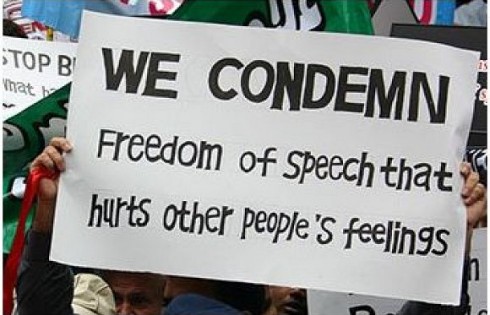
White, cis, male physicists with “good intentions” aren’t doing enough to fight the racism and sexism from which they benefit, argued two education researchers in a recently published article in the International Journal of STEM Education.
Co-principal investigators Melissa Dancy of Western Michigan University and Apriel Hodari of Eureka Scientific Inc., were able to determine their findings in part thanks to a nearly $300,000 grant from the National Science Foundation.
“While white men have an extra ability to confront sexism and racism, their good intentions are insufficient. Having an impact requires them to extend significant effort to understand the role they currently play in maintaining sexism and racism,” states the abstract of the article, headlined “How well-intentioned white male physicists maintain ignorance of inequity and justify inaction.”
Dancy describes herself in the June STEM article as a middle-class, white cis-woman who “has experienced many frustrating experiences engaging white men in dialog.”
Hodari “grounds her positionality in her identities as both a small Black girl who fell in love with mathematics” and “a working-class city kid” with a “hungry brain.”
The pair and their team interviewed 27 self-identified, white, male graduate students and faculty from 15 different physics departments across the United States, all of whom claimed to be knowledgeable about equity-related issues and generally believed in advancing equity-related causes.
Interview questions centered on the experiences of these physicists acknowledging, discussing, and confronting sexism and racism, especially in their own classrooms, labs, departments, and schools.
Questions also honed in on the physicists’ thoughts on recent studies purportedly demonstrating inequity and discrimination in STEM.
The authors then used a “lens of critical discourse” to better understand the relationship between the beliefs and actions of the white male physicists and a “epistemology of ignorance framing.”
They focused their analysis, they wrote, on “understanding exactly how it is these otherwise highly intelligent and successful physicists maintain high levels of ignorance of sexism, racism and their own privilege.”
They added that what they found was “these men, despite professing pro-equity beliefs, pervasively engage in patterns of thought, speech and action that work to uphold white and male supremacy in physics while justifying their own personal inaction.”
Based on the information provided in the Project Outcomes Report for the General Public at the bottom of the award abstract page for their $300,000 NSF grant, it would appear this was the only publication to come out of the work funded by the 2017 grant.
The College Fix reached out via email to Dancy, who is listed on the paper as the principal investigator and corresponding author, to get a better understanding of how money from the grant was spent and whether there were other studies associated with and ultimately funded through this grant. However, The Fix did not receive a reply.
According to their article, the primary means by which these white male physicists illustrate their inaction include: asserting that inequity is something physically distant from them, blaming inequity on larger societal or cultural factors over which they have no control such as the K-12 education system or women choosing motherhood over physics careers, and appealing to their own discomfort with or inadequacy in directly addressing racism and sexism.
“Collectively,” the authors wrote, “these patterns serve to maintain ignorance of the sexism and racism around them, ignorance of their complicity in maintaining systems of oppression and their own privilege, and prevent them from engaging productively in reforming the landscape of physics toward justice and fairness.”
According to the authors, it would be more productive for these white male physicists to acknowledge discrimination is occurring all around them in their professional environment, acknowledge that it is driving women and minorities out of their field, and then take action.
To rectify these problems, the authors state, people of privilege need to be targeted for interventions to help them better understand how their thoughts and actions lead to their complicity in inequity and learn ways to directly and indirectly confront oppression.
Dancy and Hodari also suggest such individuals need to be held accountable professionally for ignorance and inaction on equity issues.
“Ending racism requires white people to change. Ending sexism requires men to change,” the authors wrote. “The progressive white men we interviewed are essential to change.”
“They have the interest and motivation to act for change and the power to have an impact. Yet they maintain significant ignorance of inequity and view themselves as helpless, despite occupying the most powerful positions.”
MORE: Taxpayer-funded ‘inclusive science’ fellowship excludes white faculty
Like The College Fix on Facebook / Follow us on Twitter






Please join the conversation about our stories on Facebook, Twitter, Instagram, Reddit, MeWe, Rumble, Gab, Minds and Gettr.